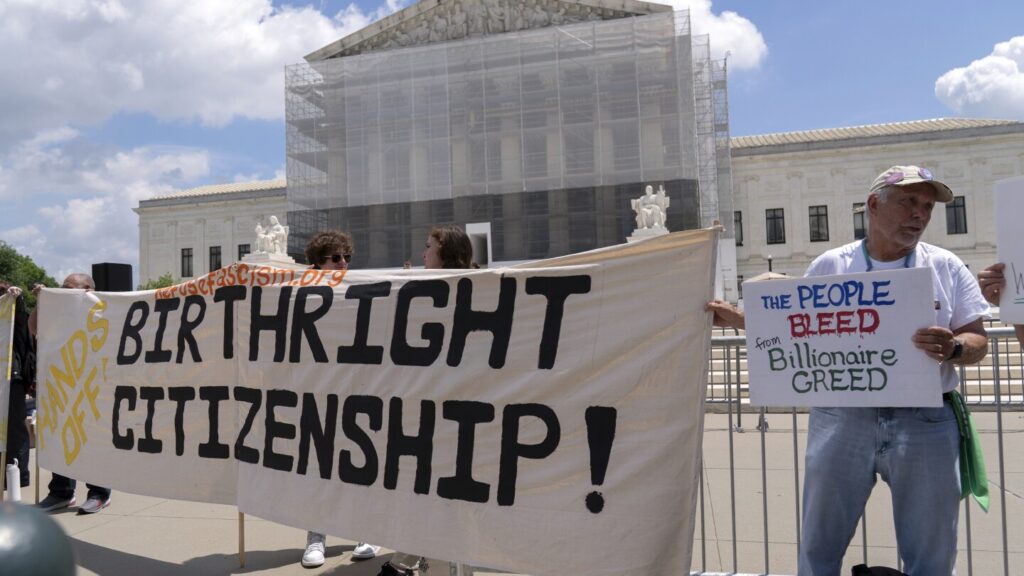BOSTON (AP) — A federal judge on Friday blocked the Trump administration from ending birthright citizenship for the children of parents who are in the U.S. illegally, issuing the third court ruling blocking the birthright order nationwide since a key Supreme Court decision in June.
U.S. District Judge Leo Sorokin, joining another district court as well as an appellate panel of judges, found that a nationwide injunction granted to more than a dozen states remains in force under an exception to the Supreme Court ruling. That decision restricted the power of lower-court judges to issue nationwide injunctions.
The states have argued Trump’s birthright citizenship order is blatantly unconstitutional and threatens millions of dollars for health insurance services that are contingent on citizenship status. The issue is expected to move quickly back to the nation’s highest court.
Lawyers for the government had argued Sorokin should narrow the reach of his earlier ruling granting a preliminary injunction, arguing it should be “tailored to the States’ purported financial injuries.”
“The record does not support a finding that any narrower option would feasibly and adequately protect the plaintiffs from the injuries they have shown they are likely to suffer,” Sorokin wrote.
A federal judge in New Hampshire issued a ruling earlier this month prohibiting Trump’s executive order from taking effect nationwide in a new class-action lawsuit. U.S. District Judge Joseph LaPlante in New Hampshire had paused his own decision to allow for the Trump administration to appeal, but with no appeal filed in the last week, his order went into effect.
On Wednesday, a San Francisco-based appeals court found the president’s executive order unconstitutional and affirmed a lower court’s nationwide block.
A Maryland-based judge said this week that she would do the same if an appeals court signed off.
The justices ruled last month that lower courts generally can’t issue nationwide injunctions, but it didn’t rule out other court orders that could have nationwide effects, including in class-action lawsuits and those brought by states. The Supreme Court did not decide whether the underlying citizenship order is constitutional.
Plaintiffs in the Boston case earlier argued that the principle of birthright citizenship is “enshrined in the Constitution,” and that Trump does not have the authority to issue the order, which they called a “flagrantly unlawful attempt to strip hundreds of thousands of American-born children of their citizenship based on their parentage.”
They also argue that Trump’s order halting automatic citizenship for babies born to people in the U.S. illegally or temporarily would cost states funding they rely on to “provide essential services” — from foster care to health care for low-income children, to “early interventions for infants, toddlers, and students with disabilities.”
At the heart of the lawsuits is the 14th Amendment to the Constitution, which was ratified in 1868 after the Civil War and the Dred Scott Supreme Court decision. That decision found that Scott, an enslaved man, wasn’t a citizen despite having lived in a state where slavery was outlawed.
The Trump administration has asserted that children of noncitizens are not “subject to the jurisdiction” of the United States and therefore not entitled to citizenship.


